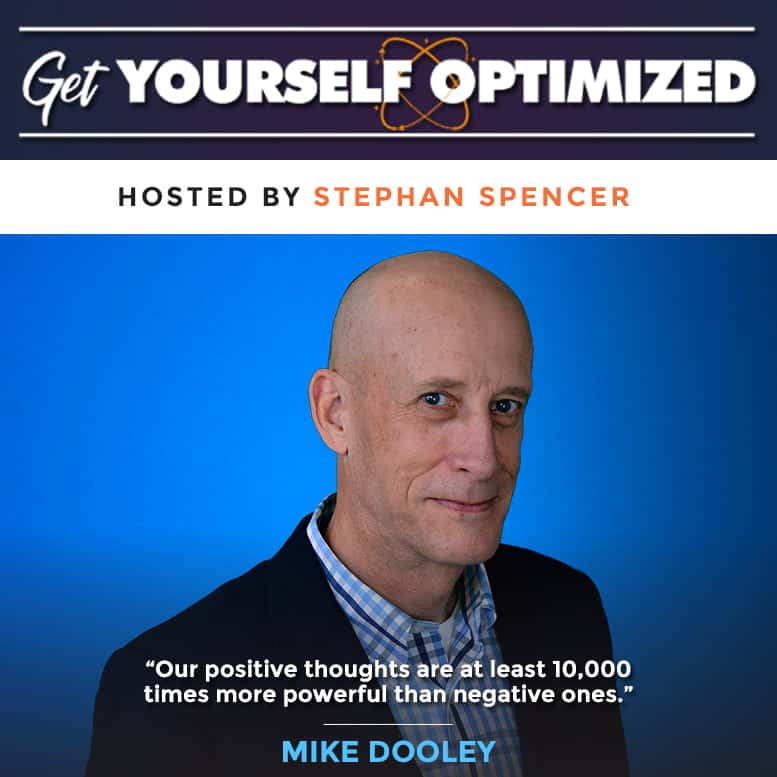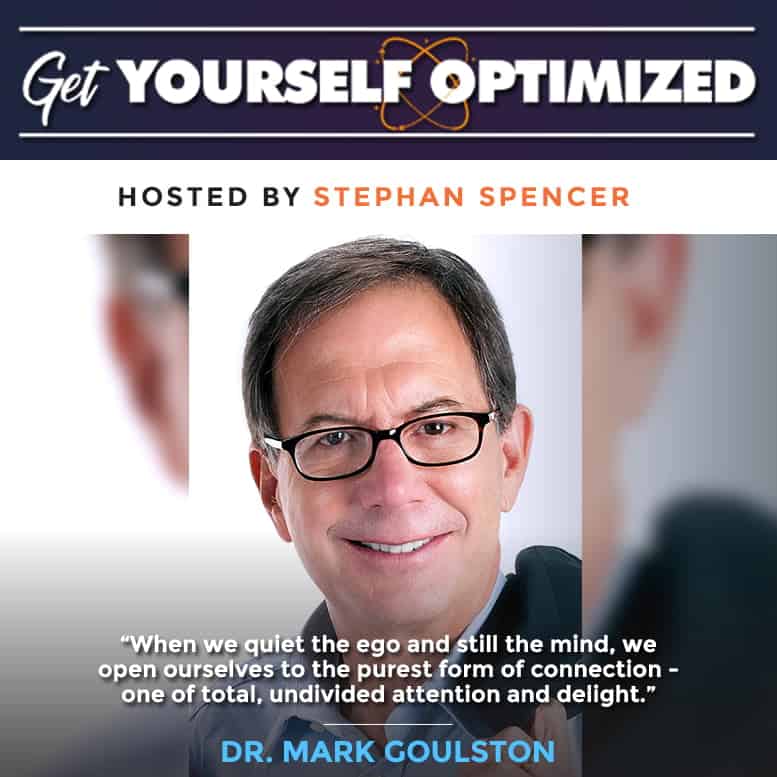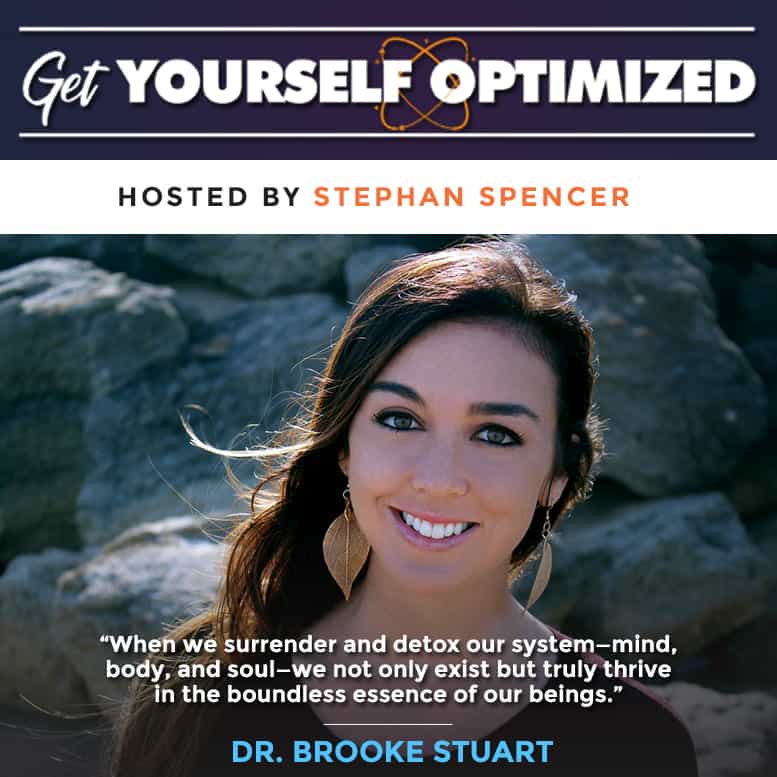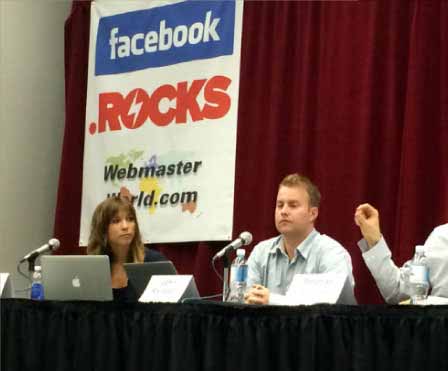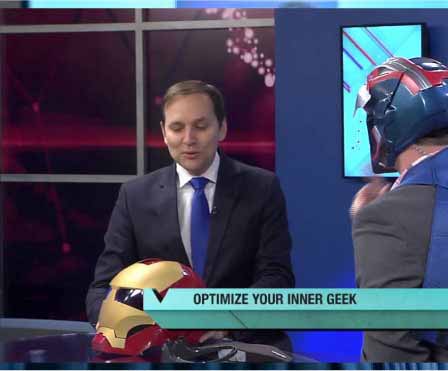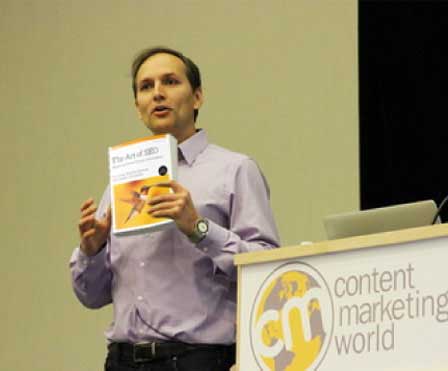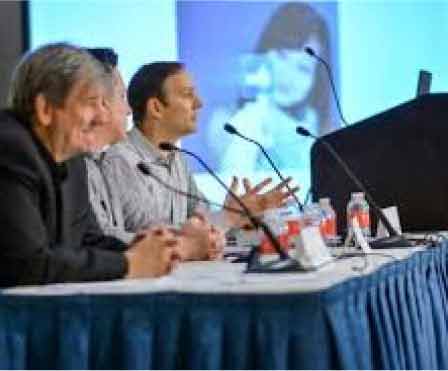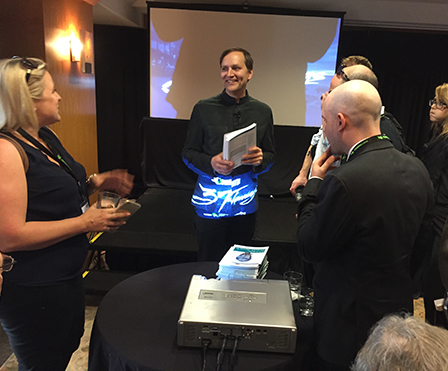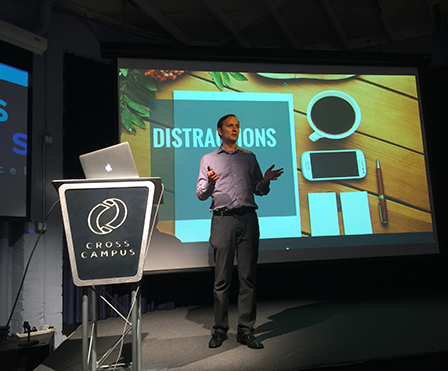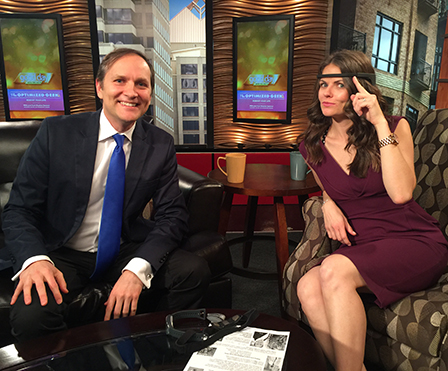Transcript
Roman, it’s great to have you on the show.
Thank you so much. It is great to be here.
First of all, why is it Roman and not John?
I wish I had a better story for this. For those who have not read the description, my full name is Giovanni Vincenzo Romaniello III, which sounds way more Italian than I am. I went through my life as John Romaniello until I was in the eighth grade and played middle school football. Growing up in a relatively Italian town, there were a lot of Johns, Michaels and Anthonys on our football team. We all went by last names. Romaniello became Roman and I have not escaped it since I was about twelve years old.
You’ve gone through a bit of a reinvention. You have Roman Fitness Systems and you are all about fitness and now not so much anymore. What was the transition for you?
It’s easier to look at that from the other direction. I like to look at things from the perspective of evolution. For me, fitness was the vehicle to get me where I am and I’m very grateful for having been able to leverage that. In Hollywood, I have a lot of friends who are actors and there’s always this idea of make the movie they want you to make so that you can make the movie you want to make. When you first start out in the online space and talking about anything, you need to establish that you can build a big business or that you have built a big business before you can talk about that. You need to establish that you are a good writer before you can teach people how to write. Before I was anything else, I was a writer. I’ve been writing since I was eight years old. The first time I remember telling someone I wanted to write a book, I was eight and told my mother. She asked me why and I said that books made me happy and I want to make other people happy as well. I was a writer before I was anything else and I wound up writing about fitness because I got involved in it in college. It was this big powerful force in my life.
I was trying to avoid grad school desperately and started a personal training business. It made sense to start writing about that. A couple of years later, it was a seven-figure business and it was going well. As much as I loved it and I do love fitness, it’s given me a lot. It stopped being the thing that got me out of bed in the morning in terms of being excited to teach people and excited to work with people. It was very much something that I no longer felt fulfilled by. The thing that had been fulfilling me for a while with regard to that business was building a business, running it and eventually teaching others how to do that as well. The fact that it was fitness was more or less after a while the veneer on top of the fact that I was getting to run a very profitable and exciting business, learning marketing and ultimately getting to write.
What’s your favorite piece of writing that you’ve ever done?
It’s hard to pick a favorite. A couple of years back, I published this very long piece on my struggle with depression and suicide attempts. That is something that’s obviously very near to my heart and it’s an area of great vulnerability and distress for me. The decision to publish that was not a difficult one. It was something I felt I needed to do. The response to it has been tremendous. I feel very grateful that I’ve been able to help people with their struggle or at least give people an understanding of the struggles of the people they know who suffer from mental illness of some kind. It is my favorite in that I believe it’s the piece of writing that has had the single biggest impact.
Has anyone told you that you saved them from suicide themselves?
More people than you might think. It’s been a very interesting journey with regard to having published that and become more of a mental health advocate. I do get emails like that all the time, but it’s something that is a little bit more direct. In 2017, I was in Austin, Texas. I was at the home of Aubrey Marcus, who is the Founder of Onnit, a great sports supplement company. Aubrey is a great guy. He is a New York Times bestselling author. He was hosting a dinner for an organization called MAPS, which is the Multidisciplinary Association for Psychedelic Studies. Dr. Rick Doblin, who is the leading voice in that area for the use of psychedelics to treat mental illness was giving a presentation. The dinner was to help fund research for the use of MDMA to treat PTSD. They’re now in phase three of clinical trials.
The irony was that as I was in the audience of this presentation learning a lot, feeling very connected and believing very strongly in this, I’ve got a DM on Instagram from an individual who had read that article and he had been a fan of my work for a very long time. He was having a real crisis. It was such a weird surreal experience to be in the audience learning about the use of these drugs to treat depression and PTSD for the purposes of preventing suicide. The upshot of it is that I wound up having to leave that presentation and get on the phone with this guy whom I have never met, to this day I have not met him, and wound up talking him off the ledge. He was in a real crisis. We shared a number of direct messages back and forth and then eventually had a phone call. He’s still alive and well, but he was in real danger that evening. He didn’t want to call the suicide hotline. He was a gentleman in Canada. I had no way of getting to him from Austin, Texas but I was able to keep him on the phone and get him through the worst of it. That has been something that is truly impactful for me and gratifying. It’s certainly not anything that I would have been able to do had I not published that article.

Kudos to you for being so open and vulnerable. You’ve saved some lives because of it. Was there some key point in the conversation you had with this guy in Canada where there was a shift for him and that’s when he went off the ledge and back to safety?
No. I think this is a great misunderstanding that people who do not suffer from mental illness have a difficult time reconciling. It’s very difficult to explain it to non-sufferers. I used to say that it was very much like trying to explain the color red to a person who was born without sight. I think of it more like trying to explain what it’s like to have an erection to a person who does not have a penis. Then later try and explain what it’s like to never be able to achieve an erection again. That is more in line with it because it is very difficult to comprehend. You have this awareness of who you are without depression and who you are now and those people feel very different. It is very much like a loss. The real thing about it is when you are depressed and when you are suicidal. We don’t know that anyone who has successfully committed suicide is happy about it. We do know that over 99% of the individuals who have attempted suicide and failed, feel very happy about not having been successful.
The way that I look at it and try to describe it is there’s an old game on cell phones called Brick Breaker. You have this little paddle at the bottom that you control. The object of the game is to hit this ball in motion back up toward these series of bricks, these blocks. Every time you hit the ball back, you move the pallets like playing Solo Pong, if you remember Atari Pong. You move the paddle to hit the ball back towards these bricks and you are slowly able to break through the wall and get to the next level. Every time you get to the next level, the ball moves a little bit faster and the paddle that you use gets a little bit shorter. That is very much like depression. Over time, if you look at your mental illness as that ball that you’re hitting back and forth that’s your depression, your suicidal ideation, your anxiety, your willpower, your ability to withstand, your ability to get through the day is the paddle that we use.
We, as humans, have this intense need to retrofit our experiences to fit our narrative. Click To TweetOver time, the ball accelerates and the paddle gets smaller. If the ball is able to get past the paddle, that is your suicide attempt. The craziest thing is for most people who are truly suicidal, if they had gotten through that day or that hour or that moment of crisis, they would not have tried to kill themselves. It’s a matter of just finding enough support that you can hit that ball back enough times to get to the next level or the next day or the next hour. It becomes harder and harder because depression wears you down. That ball of your illness starts to move faster and faster and your resilience to it is the paddle and that gets shorter and shorter over time. What happens in almost all cases and in the case of this gentleman, I was able to act as a secondary paddle to hit the ball back and to get him to the next level.
In almost all cases, if that person is able to get through that night, that minute, then they wake up the next day and they’re not fine. It’s not like it all goes away. Depression doesn’t get cured and certainly, they haven’t exited the depressive state, but they’re okay. They start the next level with a longer paddle and a slower moving ball. Most of what real suicide is, at least for people like me, I can’t speak to anyone else, it’s a matter of the exact wrong series of events happening at the exact wrong time. It is very much where opportunity meets motivation. You make an attempt. If you had not had that opportunity or there was something there stymieing the motivation to do it, you might not have made that attempt, and you could have gotten through the next day.
What is it that stops people who are in that place from calling the suicide hotline?
I can’t speak for everyone. What I do know is that most people I know who suffer from depression and mental illness, they feel a lot of shame around their condition. Suffering from mental illness is something that exacerbates feelings of worthlessness, of shame, of guilt. Depression itself is difficult. The despondency, the overwhelming feeling that you’ll never get better, this feeling of resignation that you are going to be feeling terrible for the rest of your life is hard. For me and for many people that I know, the much harder piece of it is to see the effect that your illness has on the people around you. You’re very aware that the people around you love you. That they don’t want you to be in pain. That they want you to feel better. You feeling poorly, you feeling depressed, you feeling sad and suicidal, it affects them. You see that because you’re sad, they’re sad, because you’re hurting and they’re hurting.
You also start to tell yourself this story that they are annoyed with you. They can’t understand and maybe they’re thinking, “Why can’t you get over it? Snap out of it. Your life is fine.” You tell yourself this story, develop this narrative where you are afraid to reach out to the people in your life for help because you’re worried that one more complaint, one more bad day, one more moment of telling another person, “I wish I would die.” You’re worried that that’s the thing that’s going to scare them off for good. It’s very easy for non-sufferers to say, “Reach out, I’m here for you. What can I do? How can I help?” What that is doing is ultimately putting the onus on a person who suffers from a condition that makes them think reaching out is the worst thing they can do. You’re putting the onus on them to do that very thing. They are afraid to reach out. We are afraid that other people will see us as we see ourselves, as torn, as broken, as bleeding and tear streaked. We don’t want people to see us like that because we are afraid if they do, they’ll leave.
People who suffer from depression often do not reach out whether it’s to friends or family or even to the suicide hotline because they’ve conditioned themselves to believe, “I need to handle it. I need to do this on my own and then tomorrow I’ll be okay,” because that has proven to be true for them many times. It needs to prove to be not true once and then they’re gone. What I always tell people is if you know someone who suffers from mental illness, if you know someone who suffers from depression, don’t put the onus on them to reach out. Don’t reach out and say, “You can always talk to me. I’m here for you.” That is the second to last wrong move. The exact wrong move is to tell them their life is fine and they have no reason to be upset.

They are denying the reality essentially.
Also the wrong move would be to tell them that they can reach out. That is helpful. It’s nice to know that you can, but it’s difficult to internalize that. What I always tell people is you take the effort, you take the initiative. You reach out to them. If you know someone who is suffering and their behavior changes whether it’s all of a sudden they go quiet on social media or they stop showing up to weekly functions or whatever it is, reach out to them or show up for them.
Be proactive because it’s your responsibility even though it’s their lives and their psyche and their mental illness. It’s you as the friends, the support person and the family member, it’s your responsibility. You are causing the matter. You can make a difference. Have you experimented with psychedelics? You were at this study presentation or whatever about psychedelics like MDMA for depression and suicide prevention. Is that something that you’ve used?
That’s an interesting thing because it’s not an acute thing. It’s not like if you’re feeling suicidal, you should take a drug. That’s not necessarily the move. I have had universally positive experiences with MDMA. For those who don’t know, MDMA is the chemical classification of what is commonly called Molly or ecstasy. It’s the purest form. The current studies that are being conducted are interesting. MDMA is a long-acting drug. It may last between four and eight hours depending on your dose, the potency and your level of resistance to it. The way that they use it in these therapeutic settings is to give a dose to a patient and then walk them through an eight-hour therapeutic session with a male and a female therapist. What they’ve seen is that in as little as three sessions, they’ve had soldiers who suffered from PTSD and had intense experiences in Iraq or Afghanistan. These individuals after three sessions no longer meet the DSM-5 criteria to be clinically diagnosed with PTSD.
If you’re looking at the actual linguistic approach to that, they are technically cured. They have cured PTSD at least that person is no longer clinically diagnosable with that condition. Personally, I have used MDMA on my own and with people who are what you consider to be shamans or leaders in this field, but never in a purely therapeutic session. This is very interesting in that it’s been great for me because it allows me to get to this place of objectivity and to start to work through some of the traumatic events that have led or at least contributed to the mental illness. It is difficult for me to say whether or not my experience of mental illness is entirely due to some of the traumatic incidents that happened early in my life. I don’t think that’s necessarily the case. I do think that there’s also a huge hereditary, biological and hormonal component to it.
I will say that being able to work through some of the trauma has certainly helped with my experience of depression and suicidal ideation. My experience of MDMA has been universally positive and it’s never been something that I’ve used in an acute way where I am depressed and therefore want to try this. It’s more something that I am using to enhance my life and use it in individual therapeutic session or a setting. Also, I’ve used it to develop relationships and to experience these feelings of a real pair bonding. It’s been wonderful there. I’ve also been experimenting with psilocybin, which is the active component mushrooms and also LSD. They are all very different. They do lead you through a different experience. It is very possible I think to get true accelerated growth out of these things. Within the world of psychedelic study, there is this aphorism, which states that on a one-to-one level therapy, whether it’s psychoanalysis or Cognitive Behavioral Therapy that is like taking the stairs and then when you add psychedelics to it it’s like getting on the elevator. That’s the way that it works.
Are you always doing this under the guidance of a shaman or are you experimenting with stuff on your own without any oversight or supervision?
I wouldn’t say that it’s done without oversight or supervision because there are other individuals who have greater levels of experience there. To do it exclusively with a shaman, I think creates a ritualistic experience, which I do believe is beneficial for a lot of people. I also think that you can project the idea that this is solely a higher level of spiritual experience or it doesn’t have to be. It can also it can also be a social experience. It can also be something that is intensely personal and doesn’t require a lot of people. What I would say for anyone who is interested in experimenting with psychedelics you should try it with some supervision and that can be someone who has a lot of experience and is willing to be sober during this. My experiences have mostly been with other people who I trust very much and who are seeking similar experience. I think that there’s probably some expectation for a person like me to come on and lie and say, “Yes only do it with a shaman.” MDMA is also a party drug and to lie and say, “I haven’t used it to party,” is stupid. I’m not interested in doing that. As long as you are getting a pure substance and as long as you are willing to set an intention and go into the experience with a very specific goal. Whether that goal is enhanced bonding or whether that goal is to get to a place of objectivity and see an event that happened to you with compassion, as long as there is an intention, then you’re probably in a good spot.
What have been some intentions that you had breakthroughs because of a psychedelic session?
There are some interesting things that have happened with LSD which the first time I took it, I was very much interested in getting to know more about myself. All four of the people that I took it with, we all had an experience of our core personality traits taking over. I am very much a caretaker and so I wanted to make sure everyone’s experience was good. We had another friend who was like wildly analytical and so she was very indecisive in every single moment of it because she suffered from almost analysis paralysis. She couldn’t make a decision about anything. It’s very interesting.
The second time I took it I was very interested in having more of an expansive experience and I was able to experience what’s called ego death. That is very much where you stop looking at yourself. You lose your object-subject relation ability. I had this experience of being cold toward a greater collective consciousness and that was very interesting. With regard to the MDMA, that is something that I’ve been playing or experimenting more and that is to help get through some childhood sexual trauma that I experienced that I wasn’t aware of until a couple of years ago. That’s been helpful to be able to process that event without feeling anything about it and understand that it happened and that this has worked through that in that way.

Do you feel like you’re disassociated from the trauma now or are you just more objective about it?
Not in the absolute sense. I think that it would require a lot more experience in therapy in that way, but my experience of it now is much less visceral. I certainly have less attachment to it in terms of what it means about me that it happened and it’s very much a process. I’m hesitant to talk too much about it because I am very much in the middle of it. Not that I’m hesitant to talk about the fact that the trauma occurred, but I’m hesitant to give too much insight because it is highly personal into what may happen. I would never want to do anyone the disservice of declaiming or describing something in a way that it affected me and might not affect them. I don’t want to mislead anyone to think that if you have experienced trauma of any kind, this is the solution. It’s very much a tool along the way to healing and being able to look at it objectively has been very beneficial to me. I do think that there’s a long way to go for myself and for anyone who has experienced traumatic events.
One of the primary goals of radical honesty is to eliminate ambiguity and to get to the heart of clarity. Click To TweetWould you say you’re out of the woods now in terms of suicidal ideation and the depression or is that something you’re still dealing with on an ongoing basis?
For me, I don’t believe that out of the woods is the goal because I don’t believe that it’s possible. I don’t think that there’s any cure for mental illness for most people. I do think that this is something I will struggle with for the majority of my life. I don’t think that there’s any cure for depression. I think that there is only creating better skill sets and tools for managing it when it occurs. Depression for me is not an experience of constancy. I experience depressive periods. When they occur, I am only ever hoping to be able to get through them and hopefully to be active in terms of making sure that I am not exacerbating anything.
For me, the various types of therapy and the various substances that I’m using to assist that and facilitate that whether it is prescribed medications like Wellbutrin or the occasional use of MDMA. These are all tools that I am using to better my understanding of myself and to often treat the symptom. A lot of it is you can’t control the weather and you have to be aware that when the storm hits, things are going to get messy. The best thing that you can do is recognize the symptoms or that the storm is coming to batten down the hatches and to do your best to weather it. That is what depression is like for me. I am not looking to cure myself. I am not looking to in any way create this idea or perpetuate the idea that there is a way for me to overcome it or to be out of the woods entirely. It’s a matter of understanding that it doesn’t make me a lesser person for having this illness any more than having cancer would make someone who suffers from that is a lesser person. It’s part of my experience of life and learning to manage it without allowing it to define me. To learn from it and take from it what I can to help other people be better in whatever capacity I can, that’s the goal.
Would you say you’re better at being able to reach out to people that you love for help or for support when you’re in a dark place?
Yes, absolutely. If there’s one thing that I have gotten better at it’s firstly recognizing these things but also reaching out, being able to identify and tell people that it’s bad right now and I need people around. Versus several years back when it was a matter of hiding from the world. Even if I was not myself hiding, I was hiding the illness from the world. Having gotten away from that has been a great growth for me.
Have you tried ayahuasca?
That I have not tried yet. That is next on the list and I am very interested in having a more authentic experience. I probably am not going to go to Peru and do an ayahuasca journey, but I am very interested in that being led by a shaman. Being done in the presence of other people who probably are very close friends of mine and who have had a number of ayahuasca journeys on their own. I’m very interested in doing that.
I’ve heard of some bad trips. I’ve never tried any of the stuff. This is essentially like we’re having a conversation and you’re trying to describe red to somebody who’s never seen it, but it’s fascinating. I’m enjoying the conversation. I’ve heard some bad trips from some people who have taken ayahuasca. I’ve also heard some people have amazing breakthroughs. The analogy I come up with is you’re driving a race car without having gotten even a driver’s license yet. It can be pretty scary if you don’t know what you’re doing. Is that a decent analogy for this?
There’s definitely an element of that, but the key is to realize that you’re not driving it. It’s not a race car. It’s very much you are on a roller coaster and there is a track. The reason people have bad trips I think is by trying to steer off the track. My experience of psychedelics has been very much one of understanding that this medicine is taking me to a place. Whether or not you want to put some mystical force on that and say that it has some sentient understanding of you, that’s not my thing but go ahead and do that if you want. For me, it’s like whatever is the neurochemical reaction that takes place when you apply this substance to you as a human, as a biological organism in this very particular moment of your life, it will try to take you to a certain place. Maybe I think that’s perhaps your subconscious walking you down a predetermined road. Where people seem to mess up is when they try to veer off that path. You are not in a race car. You’re not in the car, you are in a rollercoaster. It has a track and it is going to take you where it wants, and fighting that is when you get in trouble. That is when things seem to go bad for people.
You use the word medicine and I hear that a lot. People refer to this as plant medicine. What’s the significance of calling it plant medicine? Why not call it something else?
I think words mean things. When you say anything, you are imparting meaning to it. To call something a drug brings up all sorts of imagery and feeling on both the part of the speaker who might have whatever attachments to the ideas of drugs and also to the listener. Then also there’s the piece where the speaker doesn’t want the listener to perceive things. I think that within the psychedelic community there is very much this feeling of like, “You don’t understand. You don’t get it.” There is that very hippie feeling.

There’s a lot of judgment from people who don’t understand it.
There’s also judgment of people who don’t understand it on the part of people who do. There is this feeling of, “You can’t possibly understand it, so I’m going to break it down for you in the way that I can.” I think that there is this fear on the part of people who use psychedelics that if you say the word drugs, that this person who doesn’t understand it or who haven’t had that experience, they might wind up thinking of it like doing heroin in a broken-down apartment as opposed to taking a spiritual journey and having an intention. I do believe that there is a lot of attachment to the word drugs on everyone’s part. We were raised in this culture of the war on drugs and say no to drugs. That was very much my experience. People are afraid that if they say drugs instead of medicine, it in some way demeans what it is. There’s also this feeling of drugs are very much an escape. When you take psychedelics, you are not trying to escape your reality. You are trying to deepen your experience of that reality.
What do you think is the most important point that you wanted to make about the pivotal piece that you wrote about depression and suicide that we haven’t already talked about? What’s the nugget here that you want to share with our readers?
My goal when I wrote that was to avoid difficult conversations. I have always felt that writing things is easier in a lot of ways than saying them. When you write things, you only have to write it once and then you can send it to as many people as you want. At that time in my life, I had not talked about my depression with anyone and the idea of coming out and explaining it to every single person in my life individually or in small groups was terrifying. I thought, “If I write this and publish it, if anyone doesn’t know, the only thing I need to do is send them a link. I just forward them.” My goal was to let everyone in my life know what my experience was like and to create a lot of understanding around me personally. That did happen but obviously, the total number of people in my life is very small in comparison to the total number of people on Earth or the total reach of what an article like that can accomplish.
What I have been very gratified to see is that the single biggest thing people walk away with is not an understanding of my experience of depression. For people who do not suffer, they feel that they have a better understanding of the people in their life who do suffer. For the people who do suffer, they feel like this is something they can send the other people in their life so that there can be understanding. I would never have imagined that I have either the skill or the will to be able to put into words what depression is like for everyone. I certainly don’t think I was able to achieve that. To have done anything even 1% close to that, to be able to have written something that allows individuals who do not suffer to gain some understanding of what that might be like. To allow people who do suffer to feel like someone has given them a voice in a way that they couldn’t have done for themselves. If I don’t ever write anything else again of any value, to have done that is something that I feel very proud of.
Writing is still the thing that drives the world. Click To TweetDo you see this as a gift that you have depression that you’ve gone through what you’ve gone through, the trauma and all of it, is actually a gift?
No. I get that people want to put meaning on their suffering. I’m like, “No. If I could choose, I would love to have not been sexually abused as a small boy. I would love to not have to worry about whether or not I’m going to experience a two-month depression that’s going to completely derail my content creation schedule.” If there is a gift, it is only that I was born with a baseline level of talent for writing that is higher than most people. I have fallen in love with it to the extent that I actively like developing it. I was born in a time where the internet allows us to spread our message through that talent and that medium. I don’t think that the depression itself is a gift. I don’t think that the sexual trauma was a gift. I think that I am simply making the best of the situations into which I have been pressed and into which I was born.
I don’t think that the experiences themselves are gifts. There are people who do and I’m not taking anything away from them. I also think that the encouragement of people to look at everything that happened to you as a gift is insane because some things are fundamentally bad. I’m not opposed to admitting that. I’m big on radical honesty as you notice. For me, if there’s anything for which to be grateful, it is that I look at what happened to me and I look at the people who also suffer from depression and they have no voice. They were not encouraged to write when they were children. They go through their lives and they have no way to spread the message. What happened to me and what happened to them is identical. The only thing that differentiates me is that there was this other thing that I have and that’s the gift.
I’m very happy that I’ve chosen to be a voice for those people who cannot spread that for themselves. I certainly wish that the things that happened to me didn’t happen to anyone and certainly not to me. I wish that no one had to suffer from depression. It’s a horrible thing. It is no different than cancer in the way that it affects who you are and your understanding of self and the way that you have to run your life. I truly wish that no one had to suffer from cancer or depression or anxiety or anything else. It’s a horrible disease and it is the one that I have to live with. I’m willing to do that because I don’t have a choice, but to ever look at it as a gift, that’s not a label I’m willing to claim.
What about maybe like it’s a gateway to something greater? I interviewed Jonathan Fields on the show and we had a powerful conversation. He used the tinnitus that he was going through. That’s ringing in the ear that was driving him to suicidal ideation actually. It was tormenting him. He discovered mindfulness and that’s opened him. It opened his heart and his spirit. It’s fundamentally changed him. He wouldn’t have discovered this if it weren’t for the tinnitus. He sees this as an amazing gateway to mindfulness. He’s able to live with the tinnitus now. It hasn’t gone away. It’s not lessened, but he can do so much more than cope. He can thrive in his life now. Does that resonate with you?
No. I don’t want to take anything away from Jonathan. He’s a great guy. I don’t want to take anything away from anyone who does find meaning in their suffering. For me, if there’s any benefit to experiencing the things that I have, I think that one of the fundamental rules of the universe is if you want to create great art, first get good and truly miserable. I don’t know that there is any way around that for me. I cleave very tightly to my tortured genius narrative. I come from the Hemingway school of self-loathing. Maybe I’m inherently lazy, maybe I’m inherently okay just coasting. It is only this pain that drives me whereas if I didn’t have it, I would be fine. I would be okay to just chill. There are people who grew up with a relatively decent amount of comfort and they exist. When there are people who grow up with great discomfort, they want to achieve and they want to leave a mark and all that.
With regard to Jonathan, I certainly have read the stuff. I think mindfulness has been tremendously beneficial for him. Is it possible to say that he wouldn’t have discovered that or something as meaningful if he hadn’t had the tinnitus? I don’t know. I do think that we, as humans, have this intense need to retrofit our experiences to fit our narrative. If that’s the case, it’s fine. It doesn’t make it any less real for Jonathan or anyone else. It’s not my thing. I’m too much of a realist than a cynic.

Tony Robbins describes humans as meaning makers. We have some event or some bit of truth and we create a whole story or narrative around it so that we can deal with that or we can understand it. A lot of what we go through in life is beliefs and stories and not the reality of it, not the truth. For somebody who’s got PTSD or somebody who knows someone who’s got PTSD, there are a number of treatment options. We’ve talked about using psychedelics as one of them and CBT, which was briefly mentioned, Cognitive Behavioral Therapy. There are many other treatment options for PTSD. Did you do quite a lot of research about PTSD and the treatment options? If so, what were your biggest a-ha or finding that you got from that?
My experience was very much that I didn’t realize I suffered from PTSD for many years. I thought I suffered from major depression, psychological depression. It wasn’t until I unearthed a few memories of the sexual trauma that had been repressed for years that I began to dig into that. I was more effectively diagnosed with PTSD, in addition to the depression. I came at it from a roundabout way. My experience is that every person responds differently to both the therapeutic modality and to the therapist. I think that there are a lot of individuals who wind up in Cognitive Behavioral Therapy over psychoanalysis merely because they’re in their process of trying to find the right therapist for them, the right analyst. The person with whom they connected happened to practice CBT over psychoanalysis. I think that there are too many variables to ever say that this is the right path.
I think that the individual themselves is a variable. Everything like not related to their trauma and how that had made them the person they are is a variable. The trauma and how it happened and how that’s affected them is a variable. How long it’s been since the trauma is variable. How everyone else in their life has reacted to it. There’s the therapist themselves. There’s the type of therapy. There are many other drugs that get mixed in there. There are many variables that I could confidently say like this is the approach that was definitely going to work for me or would work for people like me. My experience with everything regarding mental health is that you have to be your own advocate. You have to be very aggressive. Finding the people around you who can help you. With regard to finding the right therapeutic practices and the right practitioner, a lot of that is like dating, you interview a bunch of people. You have a lot of first and second dates and a lot of first and second sessions. You get out of it what you can and then you might need to move on and find someone who’s a better fit.
Would you guess that most people with PTSD don’t even know they suffer from it?
I don’t feel qualified to answer that question. I can only say that I did not. I think that for many cases of low-grade PTSD, it is possible that many people do not realize they suffer.
There’s a book called PTSD for Dummies, I’m curious if you’ve read it. It’s by Mark Goulston who has been on my show. He’s a great guy, a good friend of mine. This For Dummies books, I’m dismissive of them because of the title, but then if you dig into some of these and they’re quite good books. Did you come across that one?
I haven’t read it.
Let’s jump back to something that you briefly touched on, which was radical honesty. That is a thing. There’s a whole discipline modality around this radical honesty. Tell us a bit about that. What is it for you and how did you find it?
Ego death is where you stop looking at yourself. You lose your object-subject relation ability. Click To TweetI am very much in the nascent stages of my experience and my experiments with radical honesty. Radical honesty is essentially the unwillingness to lie, to tell uncompromising truth no matter what. This is something that I’ve come to because it more or less lay diametrically opposed to how I was raised. There’s a lot of lying in my upbringing. In any abusive household, you are trained to lie to hide the abuse. Lying became second nature to me in terms of hiding things that I was ashamed of or hiding certain behaviors. That created a lot of problems in my life and intimacy issues. Where I am now is very much trying to move in the opposite direction and understanding that there will be grave consequences for that and reveling in that.
Eventually, my goal is not to live my entire life as being radically honest in all ways at all times, but more to develop the habit of being radically honest in every conceivable way so that I can break all of these habits. Even little things like if you want to cancel a lunch meeting with someone because you’re tired to be like, “I can’t. I’m not feeling well.” It’s a weird little thing that our culture allows us to do, pushing through that and using radical honesty is a brute force mechanism to break down all of these habits that I had. Hopefully to move more toward a livable way where I don’t feel the need to be radically honest if I might hurt someone’s feelings, but I also don’t feel the need to lie. I’m a pretty honest person with regard to things that could hurt me. It was always my impulse to lie. I’ve been actively working on breaking that and it has been difficult and very effective.
Has it been freeing for you?
It’s a lot of stress certainly. Mark Twain said, “Always tell the truth, that way you never have to remember anything.” There is definitely an element there. Also you don’t ever have to be creative. You don’t ever have to come up with anything. You could be like, “I absolutely am not interested in doing that. I’m not going to say yes only to cancel on you two weeks from now. I don’t want to go.”
I learned of a technique to detect if somebody is lying because you’ve got to get creative and make stuff up and have to remember a bunch of things. The secret to figuring out if somebody is lying is to get them to describe what happened backwards because they will mess that up for sure. I learned that from Mike Mandel, who was on my show a while back. He’s like the human lie detector. He’s got so many of these cool techniques. He’s an NLP expert. I think this is an important distinction in terms of honesty. A lot of people think that they’re being honest as long as they’re not “lying.” Leaving things unsaid where you know that somebody has a misinterpretation or a misunderstanding or a belief that you’re not correcting. I consider that a lie as well. You might sugarcoat it and call it a white lie or whatever, but I think leaving things unsaid or ambiguities are lying too. Would you concur?
Radical honesty practitioners would absolutely concur. One of the primary goals of radical honesty is to eliminate ambiguity and to get to the heart of clarity. There’s a real need to do that.

Did you start down this process of radical honesty from reading a book or going to a workshop, hearing somebody describe it in a conversation to you? What was that started you down this path?
This was something that I heard of and read about in a number of ways. I remember reading an article about radical honesty. Someone who was very well-known in that world in the 1970s, he said that, “Holding in a fart was in a sense dishonest.” I remember reading that when I was in my early twenties, thinking like, “That’s absolutely ridiculous.” This was something that floated around in my head for many years. It was more something that I did like a deep Wikipedia dive and read a couple of articles because the goal was to try and break habits that I’d had in previous relationships. Now, that I am more fully in the throes of living my sexual orientation, which is polyamorous, just maintaining a lot of relationships with various people requires honesty. It’s not that I wasn’t doing it. It was that it was hard for me. I often later found that there were these moments when I was tempted to lie and often thought about doing it. Polyamory requires intense emotional intelligence and communication. This seems the best way to break into the habit of being good at that.
What was it that got you down this path of polyamory? Is there certain events or moments that you can point to or was it a gradual discovery at some point?
Monogamy was something that was always a challenge for me. I began to hate myself in so many ways over so many relationships where I couldn’t do this thing. I thought that this makes me a bad person. There was a long journey of discovery that I’ve talked about in some other places. What ultimately happened is the more I read about polyamory and the more I spoke to people who identified that way, it became very clear to me that I had two options. There were these two houses. In one house on this side of the street, you’re broken. You’re a sex addict. You don’t want to commit. You have issues with X, Y and Z.
One of the fundamental rules of the universe is if you want to create great art, first get good and truly miserable. Click To TweetOn the other side of the street, there’s this other house where you are beautiful and this is how you are. This is fine. You can have relationships this way. Many people are happy this way. It doesn’t make you a bad person. Monogamy isn’t the only way to be happy. It’s like a social contract, etc. After a while, that coupled with my depression and suicidal ideation and I was like, “If I keep staying in this house, I’m going to kill myself because I hate myself because I’m in a relationship with an amazing person. After a year, I’m looking at them like I could literally be anywhere else in the world if I weren’t with you right now.” That felt gross to me. Now in polyamorous setups, I get to express that thought and say, “You are an amazing human and I’m enjoying this. I’ve met another person and I’m feeling called to explore that connection. Can we talk about how we could work that into the construct of our relational container?” That is difficult and beautiful and requires all sorts of tools that you have to develop. Lying isn’t one of them. It’s not one of them. Radical honesty needs to be first and foremost among those tools. Those things dovetailed very nicely for me.
My very first guest was polyamorous. Do you know, Jaiya?
No.
I met her through Neil Strauss and also through Tony Robbins. She’s a sexologist. It’s a really great fun episode. We talked about the sexual blueprints and all that stuff. If there is one thing that you want to leave our readers with that we haven’t talked about already, some nugget or insight, what would it be?
Probably the greatest skill anyone can develop is writing and asking themselves like, “How can I put this in words whatever my thought is in the most beautiful way possible? How could I write this in the most perfect sentence so that if it was the last thing I ever communicated, it was the last thing I ever wrote, I’d be okay with that?” Hemingway was talking about overcoming writer’s block. He said, “All you need to do is write one true sentence, write the truest sentence that you know.” This is a daily practice for me every day. I try to write one sentence that is absolutely perfectly true. Often, I’ll spend an hour on this thinking, “How can I write this the most beautiful way possible?” I think this is a great daily practice to be in because it allows your brain to work in that way where you are always thinking, “How can I say this in a realist and most honest way possible while at the same time adding art and artistry and beauty to it?”
The marriage of those two things is where I want to live as a creator because there is this idea certainly for people who hear about radical honesty that if you are always going to be as honest as humanly possible, then you remove uncertainty and ambiguity. Those things can be at the heart of art to allow people to draw their own conclusions. I think that’s true. There is a way to have both and to write something that is true, great and beautiful and also that hits people in a way that makes them think and feel. That is a practice for me daily. If you take a couple of minutes every day and any sentence that you write or anything that you’re about to say, ask yourself, “How can I say this in a way that is absolutely true and absolutely beautiful?” Even if you can’t do it right that moment, it’s a practice to be in. I think then that retrain your brain to think in terms of truth and beauty and the overlap between those two. That’s a great way to see the world.

What’s the next big thing that you’re writing? Are you in the middle of a book?
I finished a work on a book on depression and suicide. It’s tentatively titled. It is a series of micro-essays each one focusing on a specific facet of depression or mental illness or suicide from my experience. I’m working hard on not touching it. The resting phase where I have finished it, I’m letting it sit. I’m going to go back in a couple of months and see if I hate it or myself and see how to make it better and what to add and what to take out. That’s where it is right now.
You’re quite a force for good in the world. Are you available for coaching or mentoring? What ways could our audience work with you?
I’m not a therapist. I don’t work with mental illness at all. I have a couple of businesses. One of my favorite quotes of all time is by Michel de Montaigne and it is, “Obsession is the wellspring of both genius and madness.” That’s one of my guiding philosophies. Over the past couple of years, I’ve geared everything in my business to embody that. You know me from Roman Fitness Systems and that company. That still runs and does well. I took everything in terms of the business stuff and created a company called Wellspring Media. We have the Wellspring Society, which is a business mastermind. We teach people how to create honest and beautiful art. We obviously function on creating funnels and increasing revenue and all the stuff that makes money. We want to help people do it through creating things that last. We are not interested in helping people create businesses that just make money. We want to help people make money through creating businesses that matter and that matter to them and something that you’re passionate about. That is the Wellspring Society.
For people who are interested specifically in writing, we run workshops. Wellspring Writing Intensives are one day long and we’re doing them once every six weeks. I’d like to get to the point we’re doing once a month. If anyone’s interested in that they can check out my site, JohnRomaniello.com and email me. We also have three-day retreats where everybody is locked in a house for three days. The internet is only 90 minutes a day. You come in with whatever big project you want to work on. We have class in the morning, break down at night. There are five hours of uninterrupted work time. It’s like ten of us locked in a house and those are three days long. We have a private chef and the whole thing. It’s exciting. Other than that, I do one-on-one writing mentorship. That’s the thing that keeps me going. I love teaching people how to express themselves in new and exciting ways. People come in and whenever I meet them, they think writing is dead and that they should be focusing on Instagram or videos. I am very happy to teach them that writing is still the thing that drives the world.
This was delightful. I appreciate your radical honesty, your vulnerability sharing from the depths of your heart and your experience. I’m sure you’ve made a difference for our readers. Thank you, Roman. It’s time to take some action from this either work on yourself from what you’ve learned in this episode or help somebody else who needs it. We’ll catch you on the next episode.
Important Links:
- John Romaniello
- Roman Fitness Systems
- Facebook – John Romaniello
- Twitter – John Romaniello
- Instagram – John Romaniello
- Man 2.0 Engineering the Alpha
- PTSD for Dummies
- Jonathan Fields – previous episode
- Mark Goulston – previous episode
- Mike Mandel – previous episode
- Jaiya – previous episode
- Onnit
- Multidisciplinary Association for Psychedelic Studies
- Wellspring Society
Checklist of Actionable Takeaways










 About John Romaniello
About John Romaniello
John Romaniello is an entrepreneur, angel investor, and New York Times bestselling author. An advisor to nearly a dozen fitness and tech companies, Romaniello has written for a myriad of publications covering topics ranging from insulin sensitivity to investment strategy, and has been featured in dozens of publications and on a number of TV shows. He loves the NY Jets, unicorns, sarcasm, and writing about himself in the third person.
Disclaimer: The medical, fitness, psychological, mindset, lifestyle, and nutritional information provided on this website and through any materials, downloads, videos, webinars, podcasts, or emails is not intended to be a substitute for professional medical/fitness/nutritional advice, diagnoses, or treatment. Always seek the help of your physician, psychologist, psychiatrist, therapist, certified trainer, or dietitian with any questions regarding starting any new programs or treatments, or stopping any current programs or treatments. This website is for information purposes only, and the creators and editors, including Stephan Spencer, accept no liability for any injury or illness arising out of the use of the material contained herein, and make no warranty, express or implied, with respect to the contents of this website and affiliated materials.
LOVED THIS EPISODE
Please consider leaving me a review with Apple, Google or Spotify! It'll help folks discover this show and hopefully we can change more lives!
Rate and Review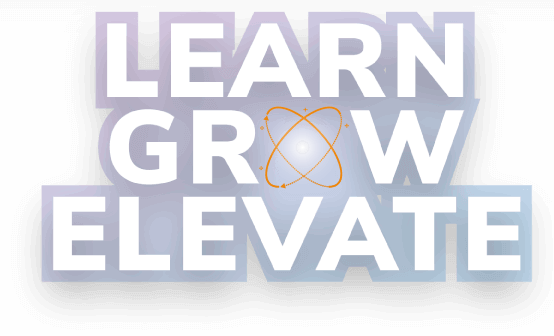







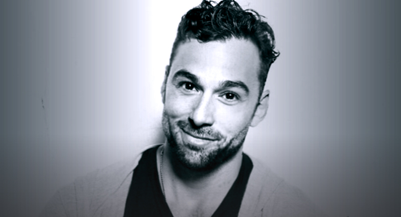
 About John Romaniello
About John Romaniello